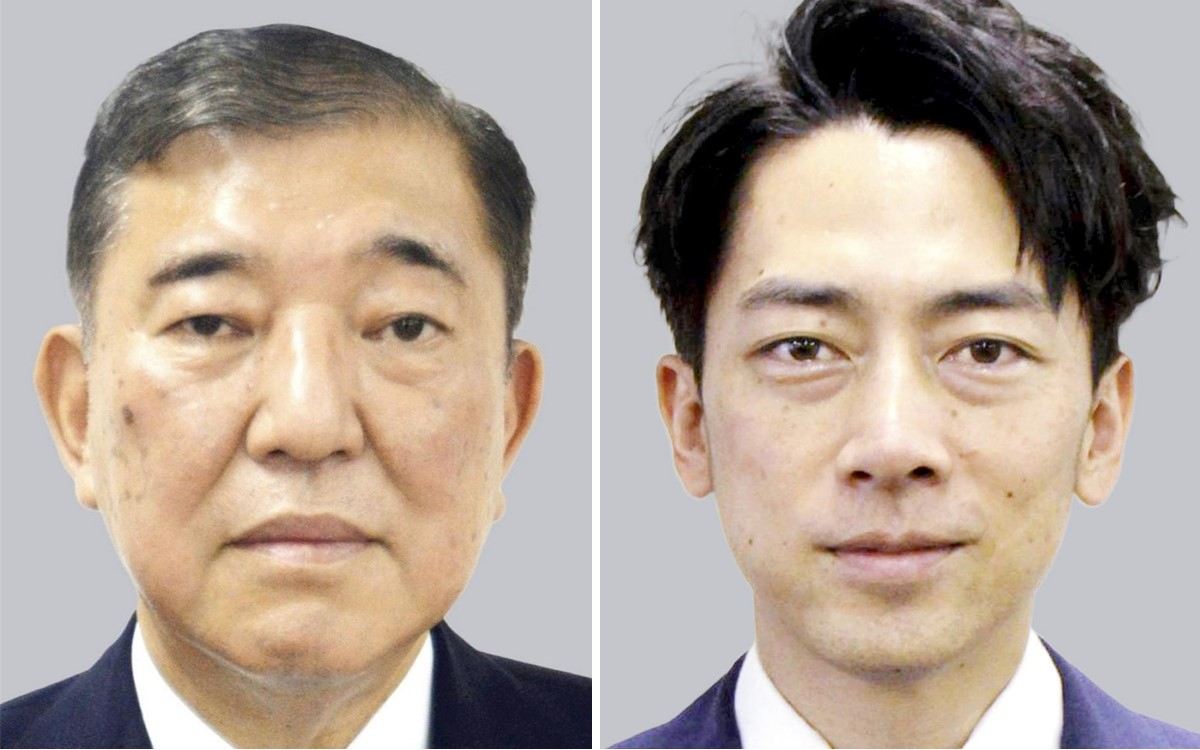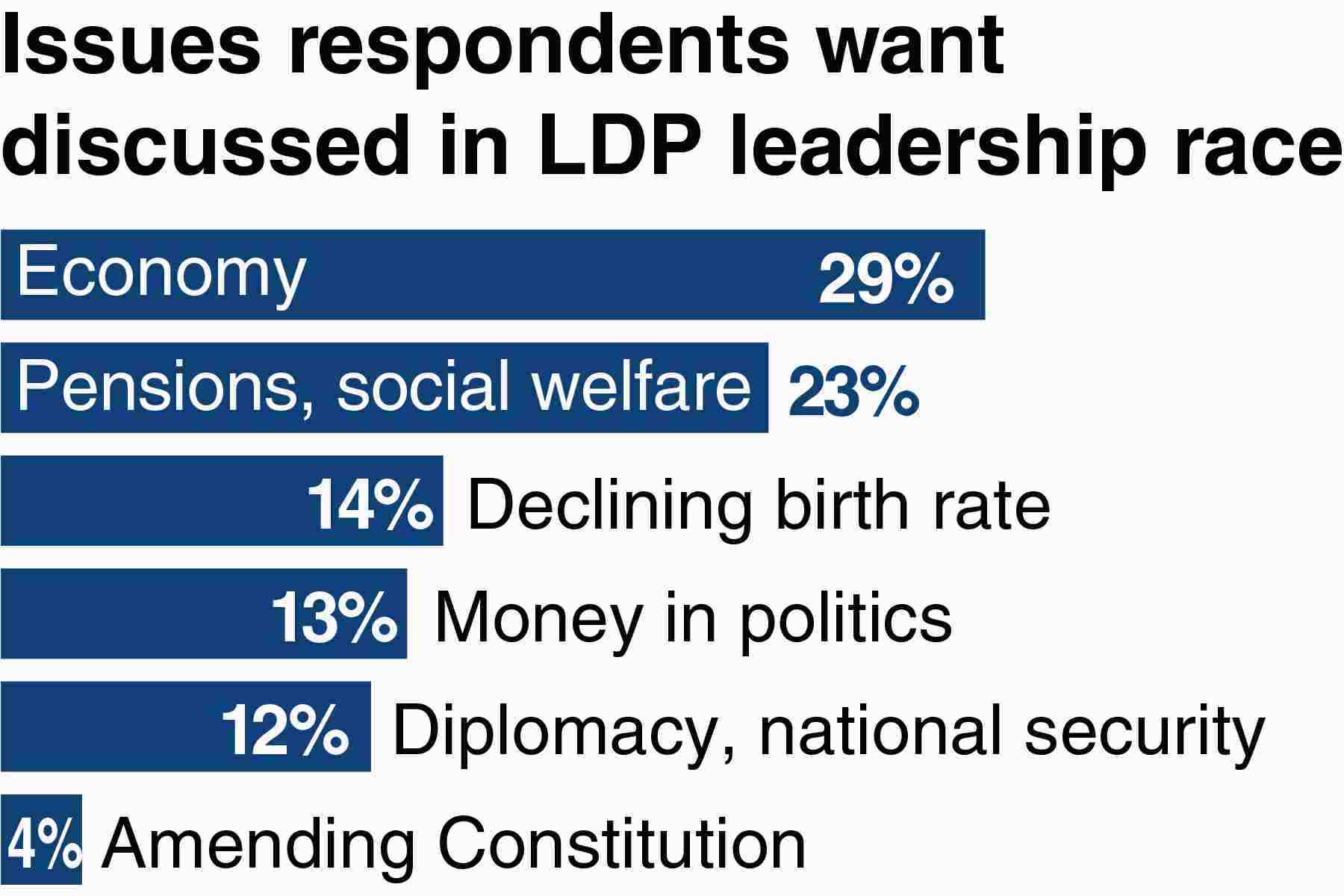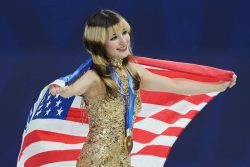Ishiba Favored by Older Voters, Koizumi by Young in LDP Presidential Race, Says Poll

Shigeru Ishiba (left), Shinjiro Koizumi (right)
20:00 JST, August 26, 2024
In the race for the Liberal Democratic Party’s next president, Shigeru Ishiba has made inroads among older voters and Shinjiro Koizumi has the youth vote, according to a recent Yomiuri Shimbun opinion poll.
In the nationwide poll, which asked respondents who was the best choice for LPD president, Ishiba came out on top and Koizumi ranked second.

Ishiba garnered 28% of the support of those age 60 or older, but only 13% of those age 18 to 39 and 22% of those age 40 to 59.
Koizumi received strong support from younger people, as 27% of those age 18 to 39 went for him.
Sanae Takaichi, who came in third, saw her strongest support from those age 40 to 59, receiving backing from 15% of that group.
As for gender, Ishiba was favored by 21% of men and 23% of women, in an almost even balance.
Koizumi was backed by 22% of men, Takaichi by 13% and Taro Kono by 10%. Those figures were 4 to 6 points higher than their support from women.
Foreign Minister Yoko Kamikawa, 71, who was ranked fifth, was backed by 8% of women, twice as much support as she received from men.
Asked why they thought a candidate was suited to being president, with multiple answers allowed, 88% of respondents who backed Ishiba said he was trustworthy, the highest percentage for the candidate. Eighty percent said he was enthusiastic about reform. Ishiba officially announced his candidacy in the LDP race on Saturday.
Ishiba seems to have strong name recognition, and respondents praised his willingness to criticize the government.
The most common reasons for choosing Koizumi, both at 87%, were his personality and skill at communicating messages to the public. Views of him as a strong communicator seem to stem from his being the son of former Prime Minister Junichiro Koizumi and his frequent appearances in the media.
The most common reasons for choosing Takaichi, both at 81%, were her personality and enthusiasm for reform.
As for Kamikawa, respondents most frequently cited her grasp of international issues.
Takayuki Kobayashi was most often backed for his enthusiasm in reform and refreshing image.
Asked which issues they wanted candidates to discuss, 29% of respondents, the highest percentage, cited economic policy, while 23% cited pension system and other social welfare issues, 13% cited problems of money in politics and 12% cited diplomacy and national security.
“Candidates in the presidential election need to present clearly what they will do,” said Prof. Kazuhisa Kawakami of Reitaku University, an expert on political psychology. “With a possible early dissolution of the House of Representatives and general election, party members will likely be watching public opinion polls, voting for a party president and prime minister who they think will help the party win.”
Related Tags
Top Articles in Politics
-

Japan PM Takaichi’s Cabinet Resigns en Masse
-

Sanae Takaichi Elected 105th Prime Minister of Japan; Keeps All Cabinet Appointees from Previous Term
-

Japan’s Govt to Submit Road Map for Growth Strategy in March, PM Takaichi to Announce in Upcoming Policy Speech
-

LDP Wins Historic Landslide Victory
-

LDP Wins Landslide Victory, Secures Single-party Majority; Ruling Coalition with JIP Poised to Secure Over 300 seats (UPDATE 1)
JN ACCESS RANKING
-

Japan PM Takaichi’s Cabinet Resigns en Masse
-

Japan Institute to Use Domestic Commercial Optical Lattice Clock to Set Japan Standard Time
-

Israeli Ambassador to Japan Speaks about Japan’s Role in the Reconstruction of Gaza
-

Man Infected with Measles Reportedly Dined at Restaurant in Tokyo Station
-

Man Infected with Measles May Have Come in Contact with Many People in Tokyo, Went to Store, Restaurant Around When Symptoms Emerged




















